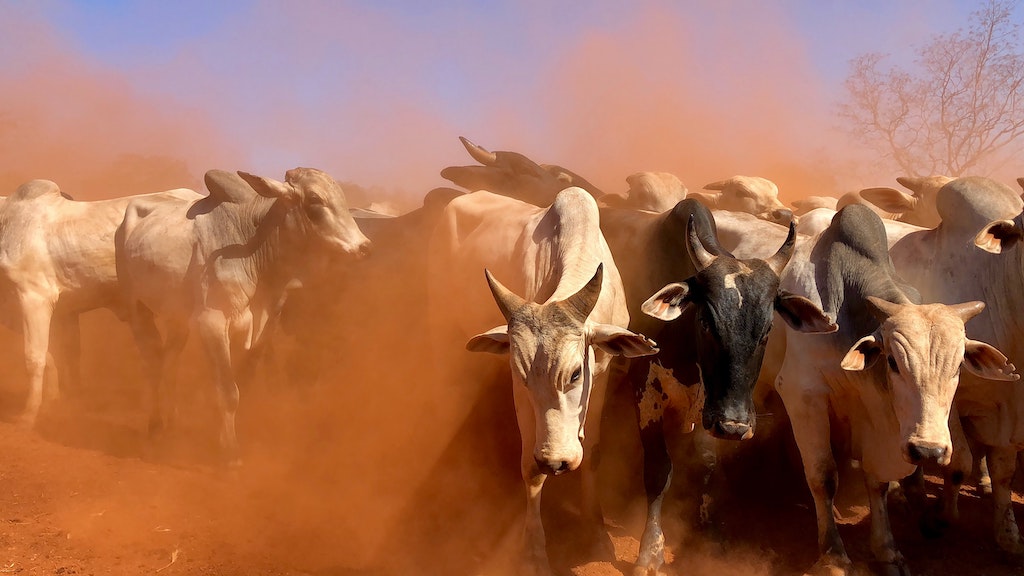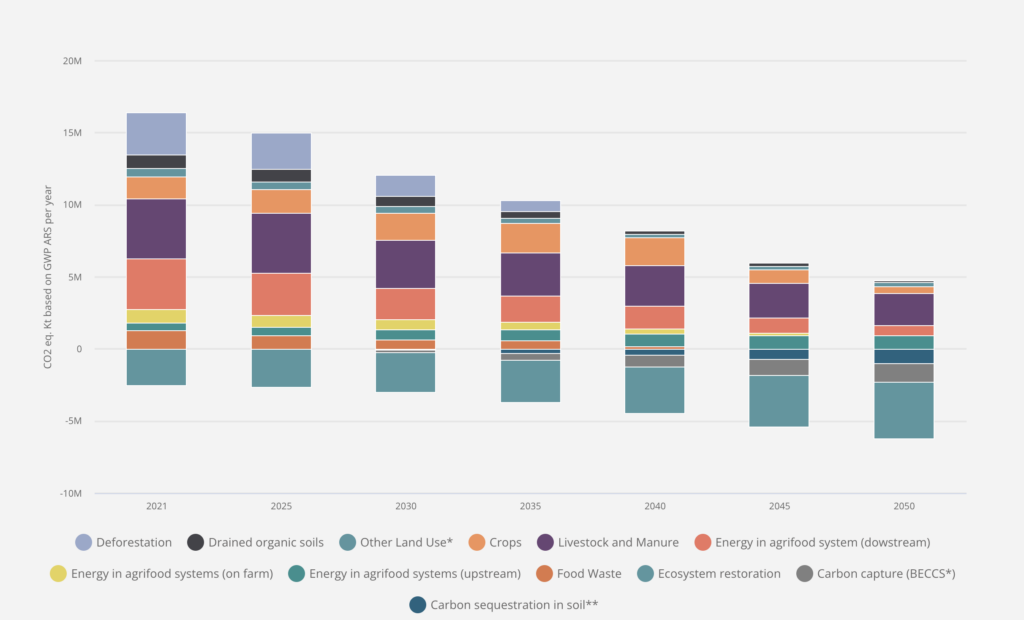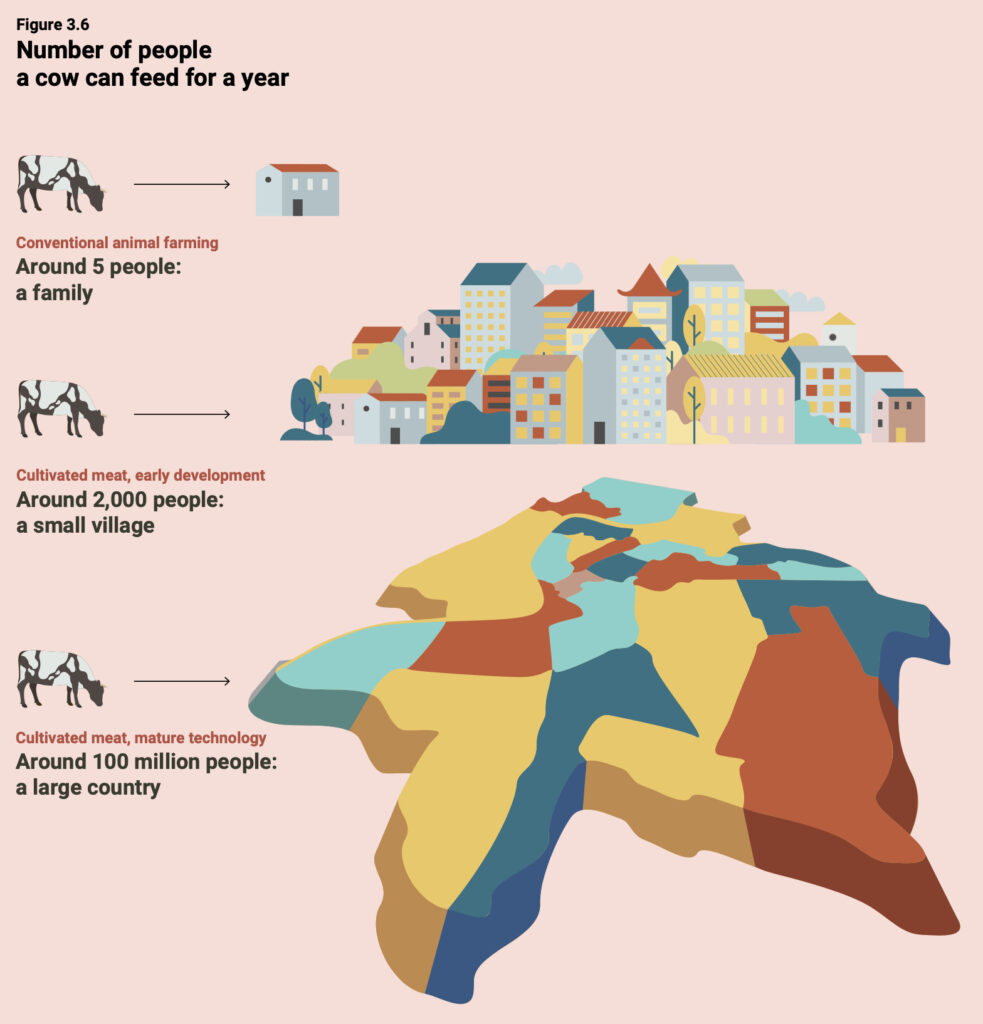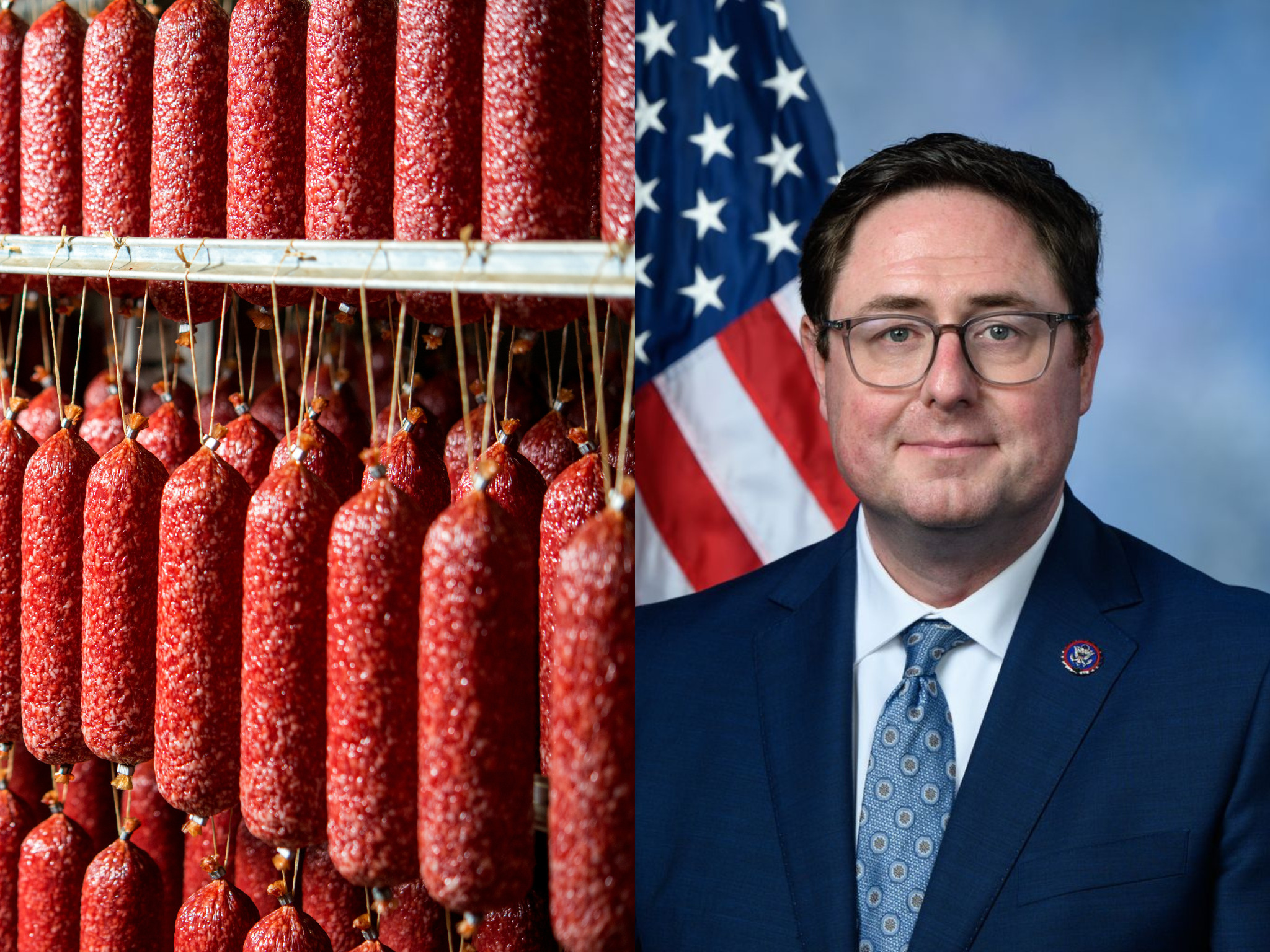Nebraska Republican Drafts Resolution Condemning FAO’s Recommendation to Reduce Beef
8 Mins Read
Just as the Food and Agriculture Organization (FAO) laid out a roadmap at COP28 to cut the agrifood sector’s emissions and align it with the 1.5°C goal, a US Republican representative from Nebraska has introduced a resolution condemning the UN body’s recommendation to reduce meat in rich countries.
COP28 is finally over, with some major agreements and historic deals headlining the climate summit, just as some matters left a little to be desired. A few fell in both categories, including the Global Stocktake, which urged countries to transition away from fossil fuels – a positive step, albeit one much weaker than the phaseout many were hoping for, leading to criticisms from groups and leaders around the world.
Another such divisive publication was the food and agriculture roadmap laid out by the FAO on Sunday, which entered the conference on the back of an investigation revealing that the UN body censored its own employees on the reporting of livestock emissions after pressure from the animal agriculture lobby.
The FAO’s plan to keep the agrifood industry’s climate impact in line with the 1.5°C warming goal set out in Paris in 2015 involved a broad range of actions, one of the main ones being a 25% methane emissions cut from livestock by 2030. This would mean a reduction in the consumption of meat and dairy, something the FAO didn’t explicitly state.
Now, a US Republican is railing back against the UN, condemning its “anti-beef” stance and claiming that a decrease in meat consumption would “shatter” global food security.
What did the resolution state?

Nebraska representative Mike Flood has introduced a resolution disapproving what he says is a recommendation by the UN to reduce meat consumption in the US.
“Meat is a nutrient-rich source of protein that is enjoyed by many people in the United States and efficiently delivers calories and vitamins, greatly contributing to the world’s food security,” the resolution stated. “The United States is the world’s largest producer of beef… [it] exported 1,000,000 metric tons of beef valued $11.71B.”
Flood noted how the US is the world’s third-largest pork producer and consumer, and the biggest poultry producer, and that “animal proteins are complete proteins and contain more protein per calorie than plant proteins”.
Additionally, “agriculture, food, and related industries contributed 5.4% or roughly $1.264T” to the GDP in 2021, and last year, “22.1 million full- and part-time jobs were related to the agricultural and food sectors, which is 10.4% of total employment” in the country. “In 2021, meat and poultry plants employed the largest percentage of food and beverage manufacturing workers,” the resolution read.
It continued to state that “reductions in meat consumption will have negative impacts on nutrition, the United States economy, and global food security”. This was followed by a recognition of “the importance of meat and livestock production” to the economy, a disapproval of the UN recommendation to reduce meat consumption, and an opposition to the use of any federal resources to support attempts to cut meat intake.
What have Republicans said?

“The UN’s plans for your diet would be nothing short of a disaster for your health and food security worldwide,” said Flood, a member of the Congressional Beef Caucus. “Meat is one of the most efficient ways to deliver protein, and here in the Beef State, cattle are a critical part of the Golden Triangle that’s supplying clean ethanol fuel around the world.”
He added: “The resolution I’m introducing today makes it clear that the United States opposes any attempt to reduce or eliminate meat production. Doing so would shatter the world’s food security and end an age-old way of life for millions of farm and ranch families across the globe.”
The Congressman’s move received support from his colleagues in the Republican party in Nebraska, including representative Ashley Hinson and governor Jim Pillen. The latter called it a “radical attack on agriculture” that undermined the lives of farmers and ranchers in the state and across the country. “Anti-agriculture activism damages the world’s food system and hurts the hungry,” he said.
Hinson, meanwhile, adopted a different rhetoric, taking a dig at Qu Dongyu, the director-general of the FAO, and his work in the Chinese Communist Party. “It’s laughable that a UN agency spearheaded by a top CCP official is calling on Americans to eat less meat in the name of climate change when China is the world’s worst polluter,” she said.
“This is a thinly veiled attempt by China to undermine US agriculture, as well as the Iowa farmers who produce high-quality meat,” she added, before entering another tangent. “I’m proud to lead the charge to condemn this nonsense from the UN alongside representative Flood, stand up for US agriculture, and set the record straight.”
What did the FAO roadmap actually say?

So let’s take Hinson’s advice and set the record straight. Ahead of COP28, it was reported that the FAO would indeed highlight the overconsumption of meat by the rich, advising the nations that eat too much meat to cut back. It was also expected to suggest that developing nations will need to improve their animal agriculture industry, encouraging farmers in developing countries to boost the productivity of their livestock and supply more sustainably.
But while the FAO did deliver on the latter, calling for increased livestock productivity to feed lower-income regions, its report did not explicitly ask rich countries to eat less meat (only its website alluded to this). While it did acknowledge the need to change diets to reduce meat and dairy emissions, which would help with its 25% lower methane emissions target, it said plant-based foods can’t always be an adequate source of certain nutrients.
In response, a group of organisations including ProVeg International, Mercy for Animals, Friends of the Earth, and Changing Markets Foundation – as well as Green Queen – highlighted gaps in the roadmap in a joint letter. The focus areas outlined are dietary shifts, animal agriculture, methane, fisheries and aquaculture, crops, forestry and food systems, subsidy reforms, and the One Health approach.
“The roadmap falls short of highlighting the specific benefits of transitioning towards more healthy, plant-based diets, especially in regions with excessive consumption of animal-based foods,” said Stephanie Maw, policy manager at ProVeg.
“It talks about healthy diets but stops short of recommending a reduction in meat and dairy consumption in rich countries and parts of emerging economies as one of the best ways to reduce emissions and land use,” said Nusa Urbancic, CEO of the Changing Markets Foundation.
What does this all mean?
There were a lot of questionable statements on the part of the Republican politicians mentioned above. Flood’s claim that meat delivers calories and proteins efficiently is quite misleading – globally, 77% of agricultural land is used for livestock (pasture grazing and animal feed), but this only produces 18% of the world’s calories and 37% of its protein.
His statement about food security doesn’t live up to scrutiny either. Americans infamously eat too much meat – about eight times more than the recommended amount – but what’s more striking is that just 12% of US consumers are responsible for half of the nation’s meat consumption.
A study earlier this year found that even if we replace half our meat and dairy consumption with plant-based alternatives, it would reduce the number of undernourished people by 31 million – a 3.6% decline globally. As Nico Muzi, managing director of Madre Brava, told Green Queen last month: “Meat is a very inefficient way of producing cheap unsustainable proteins for a growing world population. For food security reasons, world leaders should be looking at boosting the production of protein crops and reducing the production of beef.”

Flood honed in on the economic aspects of meat production, but completely overlooked the environmental cost. Recent research by Compassion in World Farming, an animal advocacy organisation says Americans need to cut their meat intake by 82%, if they’re to avoid climate disasters similar to the New York City floods in the long term.
Then there’s Hinson, who slammed “anti-agriculture activism” without realising that growing food crops is also, in fact, agriculture. Her attack on China is at best ignorant, and at worst, a blatant case of xenophobia. She asserted that China is the worst polluter in the world, a patently incorrect statement. That honour belongs to countries in the Gulf, which have the highest per capita emissions. The US follows closely after, but here’s a little data nugget for Hinson: since 1850, no country has released more carbon into the atmosphere than the US, which makes up 20% of all global emissions.
Deflecting the issue to blame China is something rooted in recent Republican rhetoric. Donald Trump used to do it time and again, especially once the pandemic hit. Speaking at a Republican primary debate earlier this year, Nikki Haley, the country’s UN ambassador under the former president, has pushed all mitigation responsibility onto China and India, echoed by South Carolina’s Tim Scott (who included Africa in that list too).
Statements like the ones made by Hinson are dangerous attempts at spreading misinformation (and hatred) among the public, and these need to be stopped. But these politicians aren’t alone in promoting meat: Florida House representative Tyler Sirois has proposed a ban on cultivated meat in the state, which is currently under consideration. Another party member, Vivek Ramaswamy, has denied the existence of climate change altogether.
What’s almost funny is that this effort by Flood – which feels more like an attention-grabbing stunt than a sincere attempt to safeguard farmers – seems to have responded to the wrong UN report. The FAO didn’t explicitly recommend the reduction in meat consumption that he was roundly criticising the UN for. A report that did was by the UNEP, released last Friday, endorsed alternative proteins over meat and dairy for better health and climate outcomes.
Looks like Flood was barking up the wrong horse. And he didn’t even do it well.




